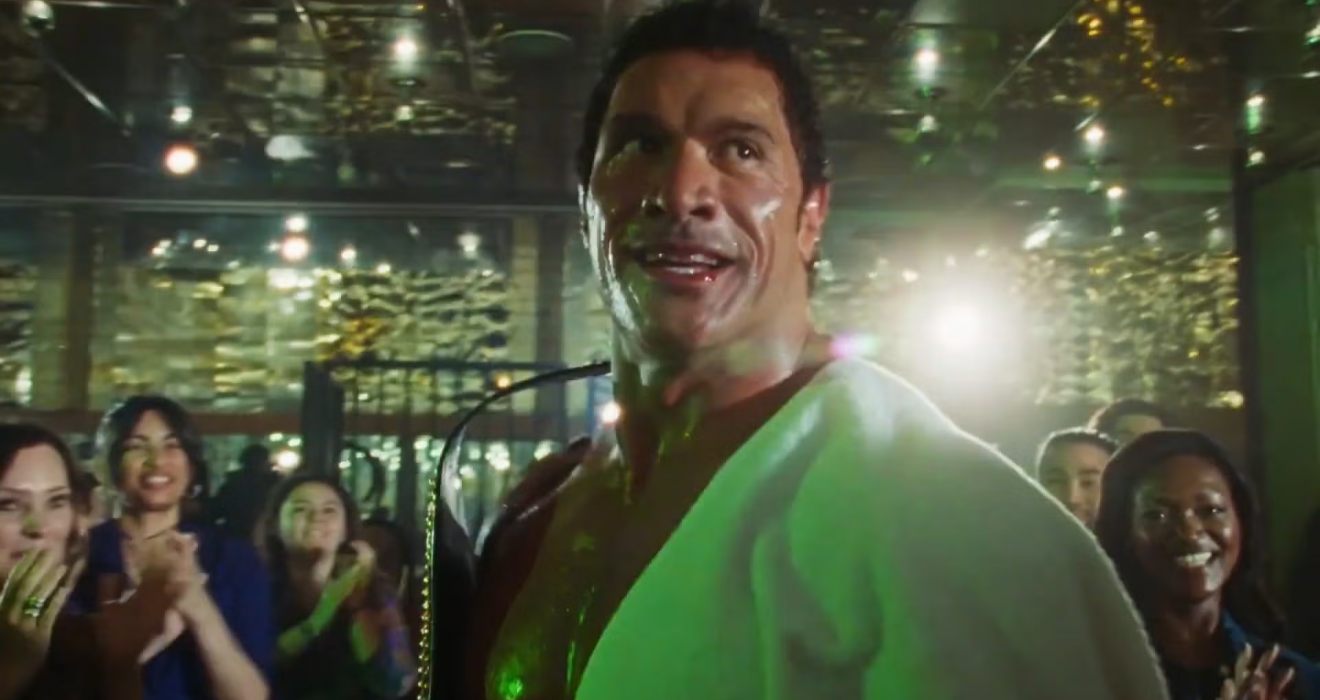“The Smashing Machine” (2025) Review
Director: Benny Safdie Screenwriter: Benny Safdie Cast: Dwayne Johnson, Emily Blunt, Ryan Bader, Bas Rutten, Oleksandr Usyk Distributor: A24 Running Time: 123 min. MPAA: R
This movie might not seem like my jam, given that I’ve never been into the UFC, but that doesn’t matter with Benny Safdie’s direction. I never cared much for basketball, gambling, or jewelry, but he made me care about all three with his engrossing direction for Uncut Gems. The Smashing Machine does defy convention by searching through the rise and fall of fighter Mark Kerr less as a by-the-numbers sports biopic and more as a hunt for humanity through the pain and sweat. While this picture seems to scurry through the darkness with its infrequent focus, the effort is admirable for not taking the commercially safe route for a sports icon.
The casting helps sell this atmosphere, given that Dwayne Johnson is a natural fit for the role of Mark Kerr. Audiences have been primed to accept him as the big and buff contender that, if Johnson’s look isn’t a spitting image of Kerr, his intimidating presence signals a capable fighter. His contemporaries in this film are also perfect fits, with real-life MMA fighter Ryan Bader playing the part of a fellow fighter, Mark Coleman, and UFC Heavyweight Champion Bas Rutten playing himself. Again, it doesn’t matter if Rutten pulls off a 25-year-younger version of himself, as he has to be a believable figure in Mark’s training. With the physicality firmly established, the film can better focus on making Mark a more human figure, struggling with addiction and fearfully fragile of becoming something hideous. It primarily works, given that Johnson’s previous roles have been framed as more of a dorky muscle mass. Watching that more emotionally vulnerable acting slowly come out as a man trying his hardest not to fail was a refreshing change of pace, especially for the compelling shots of framing Johnson from behind, signalling a closed-off nature and an uncomfortable distance the character places between others.
An easy source of drama would be the relationship conflicts between Mark and his wife, Dawn Staples (Emily Blunt). With Dawn’s more lavish lifestyle, there’d naturally be a fight over the distance in their relationship fostered by Mark’s obsession. But what made their dynamic more potent is how Mark tries to avoid conflict with her, but ends up incurring it for being unable to meet Dawn’s emotional and social needs. One would think that their relationship would only improve after Mark goes to rehab and gives up drugs, but it only worsens as Dawn descends into booze, drugs, and even suicide. It’s a relationship that Mark struggles to salvage, perfectly symbolized by a shattered bowl amid a fight and the attempt to fix it with crazy glue. Mark still holds it together, but the cracks are visible.
The scenes between Johnson and Blunt might be the most expected and conventional, but their performances feel more genuine thanks to Safdie’s gritty realism in direction. Most of the film has the edge of skipping around Mark’s legacy to find the more compelling moments beyond harping on rehab and giving his training montages a coat of the inspirational and operatic. The opening scene feels unique for framing Mark’s Brazilian bout with a jazz soundtrack and Mark’s voice-over interview, where he divulges his philosophy on evolution through fighting and the intoxicating high of winning. In the statements he gives to the media, it becomes clear what makes Mark so intriguing. This isn’t a fascinating figure because he wants to win, but rather that he doesn’t know what to do if he will lose, refusing to let any negativity into his head to the detriment of his mental state.
Darting from moody jazz during fights to Frank Sinatra during training montages, I admire this picture’s experimentation, even if it does seem to sacrifice flow. It always felt like a few more scenes were missing to better portray Coleman as a friend worthy of relying on and a rival worthy of winning a championship. Even Dawn felt like there could’ve been more to her descent, as there are a few scenes where she’s not hanging on Mark’s arm and struggling to hide her desperation. However, the distance from these characters weirdly reflects Mark’s desire to focus and shut out any element that could hinder his next fight. This aversion feels like the film and Mark are trying to preserve a version of the other parties that won’t be demonized, as the two closest people in his life are rarely seen as a burden, making it heartbreaking when Mark will only show his tears around them.
The Smashing Machine manages to land a few blows against conventional sports biopics, with direction that is more human than heroic. The pain and turmoil never feel like necessary scars for becoming a fighting legend, nor do the fights feel like noisy duels of heads getting kicked and ribs being punched. Mark signs an autograph for a young fan in a very telling scene and imparts a simple philosophy that a young mind could understand: “No fighting.” That might seem counterintuitive for a UFC fighter to state, but it’s fitting for someone like Mark Kerr, who only wanted to fight in the ring, believing it was the only battle that mattered. Everything outside the ring was a much more brutal battle to fight through, and Safdie’s film makes an admirable attempt to pierce that fog of war to find something more.

